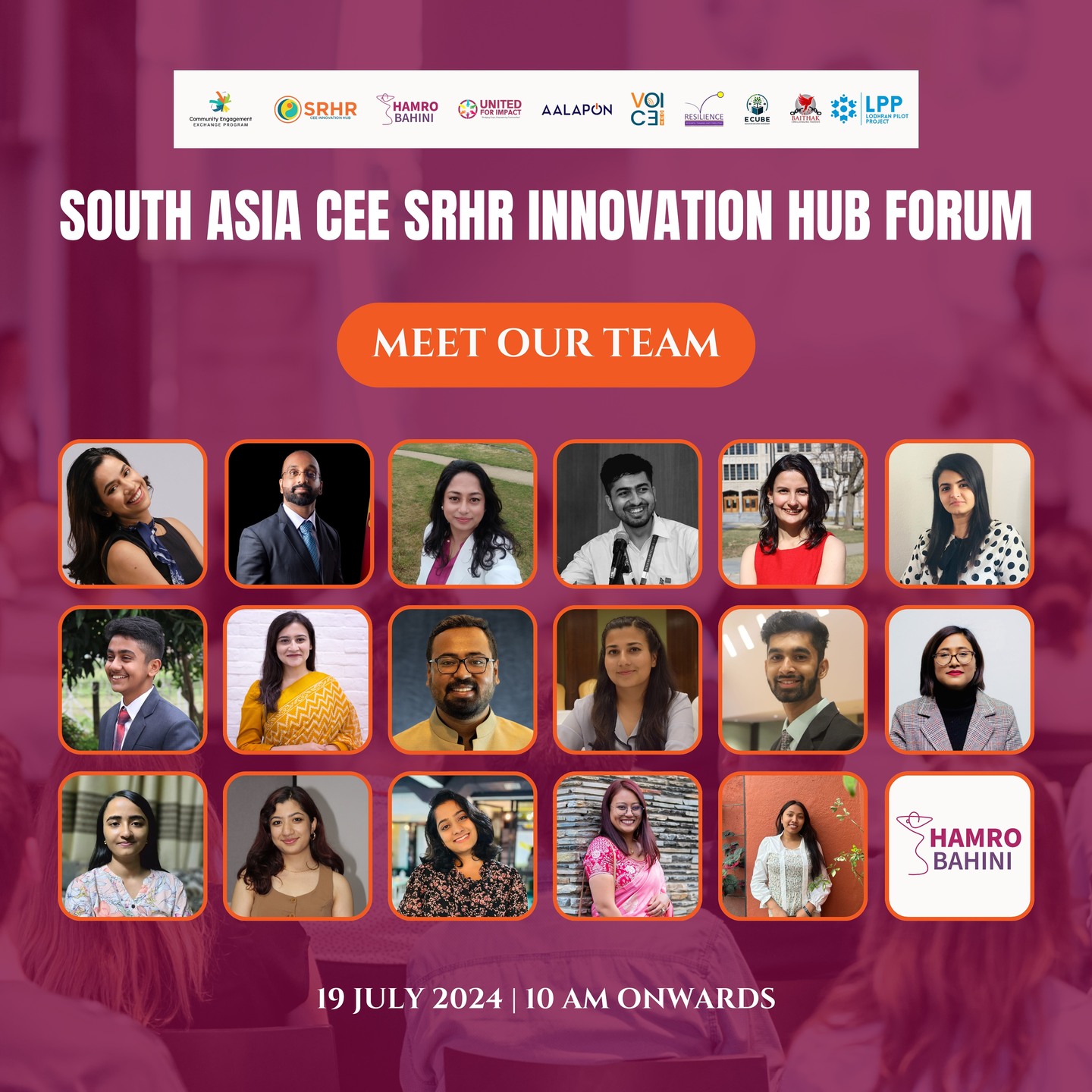-
-
-
Anamnagar, Kathmandu, Nepal

South Asia SRHR Innovation Hub Conference

- 2024/08/08
- 08:00 AM
Background of the Conference
The “South and Central Asia CEE SRHR Innovation Hub Forum” is an initiative born out of a critical need to address the gaps in Sexual and Reproductive Health and Rights (SRHR) literacy among adolescents across South and Central Asia. Rooted in the success of the Hamro Bahini Project, which began in Nepal, this forum aims to expand and adapt SRHR interventions to various cultural and social contexts within the region, including Bangladesh, Sri Lanka and Pakistan.
Genesis of the Initiative
The journey began with the formulation of the Hamro Bahini Project, which focused on empowering youth with knowledge and skills related to SRHR. A team of dedicated young individuals from diverse backgrounds collaborated to make this project a success. Through community interventions, training of SRHR Champions, data collection, and the publication of case-study-based handbooks, the project aimed to bridge the SRHR literacy gap among adolescent girls in Nepal. During the project’s implementation, it became evident that SRHR interventions were critically needed within our communities. This realization led to the creation of United for Impact (UFI), a young women-led, impact-driven social enterprise established in 2023. UFI’s mission is to empower communities through capacity development, policy interventions, advocacy, education, innovation, and entrepreneurship, creating safe spaces for youth and children to thrive.
Expansion and Evolution
The Hamro Bahini project has now been expanded to Bangladesh, Sri Lanka and Pakistan through the Community Engagement Exchange (CEE) South and Central Asia Innovation Hub grant by the US Department of State. This expanded iteration focuses on continuing and enhancing the Community Engagement Project model, adapting it to the specific cultural and social contexts of different South Asian communities. The project implements localized SRHR education and awareness campaigns, creates youth-friendly spaces for information access, and engages with local stakeholders to promote SRHR knowledge and practices.
Nepal serves as an exemplary location for the forum due to its successful implementation of the Hamro Bahini Project, which has significantly improved SRHR literacy among adolescents. Nepal’s diverse cultural and social landscape provides valuable insights and practical examples for adapting SRHR interventions across South and Central Asia.
Objectives of the Conference
The “South and Central Asia CEE SRHR Innovation Hub Forum” aims to:
- Explore the current status and challenges of SRHR in Pakistan, Sri Lanka, Bangladesh, and Nepal.
- Share learnings and reflections on past initiatives.
- Highlight pressing issues within SRHR, such as the impact of climate change and the role of AI.
- Develop actionable recommendations for SRHR initiatives.
- Enhance understanding of digital advocacy and inequality in infertility care.
- Strengthen collaboration among stakeholders and increase awareness and education on SRHR issues.
Conference Agenda
The conference will span two days and include a series of presentations, panel discussions, cultural performances, and collaborative workshops. Key sessions will cover topics such as digital advocacy in SRHR, addressing inequality in infertility care, and SRHR care during emergencies. The forum will also facilitate open discussions and feedback sessions, ensuring active engagement from all participants.
Expected Outcomes
By the end of the conference, we aim to achieve the following outcomes:
- Development of actionable recommendations for SRHR initiatives.
- Enhanced understanding of digital advocacy and strategies for addressing infertility care disparities.
- Strengthened collaboration among stakeholders.
- Increased awareness and education on SRHR issues.
Participants:
Expected Participants: 70 (Around 30/35 Champions/ 15 OC/Guests)
Participants Include: Activists, Civil Society Leaders, Government Representatives, Health Experts, Digital Advocates, Community Leaders
Outcomes:
- Development of actionable recommendations for SRHR initiatives.
- Enhanced understanding of digital advocacy and inequality in infertility care.
- Strengthened collaboration among stakeholders.
- Increased awareness and education on SRHR issues.
